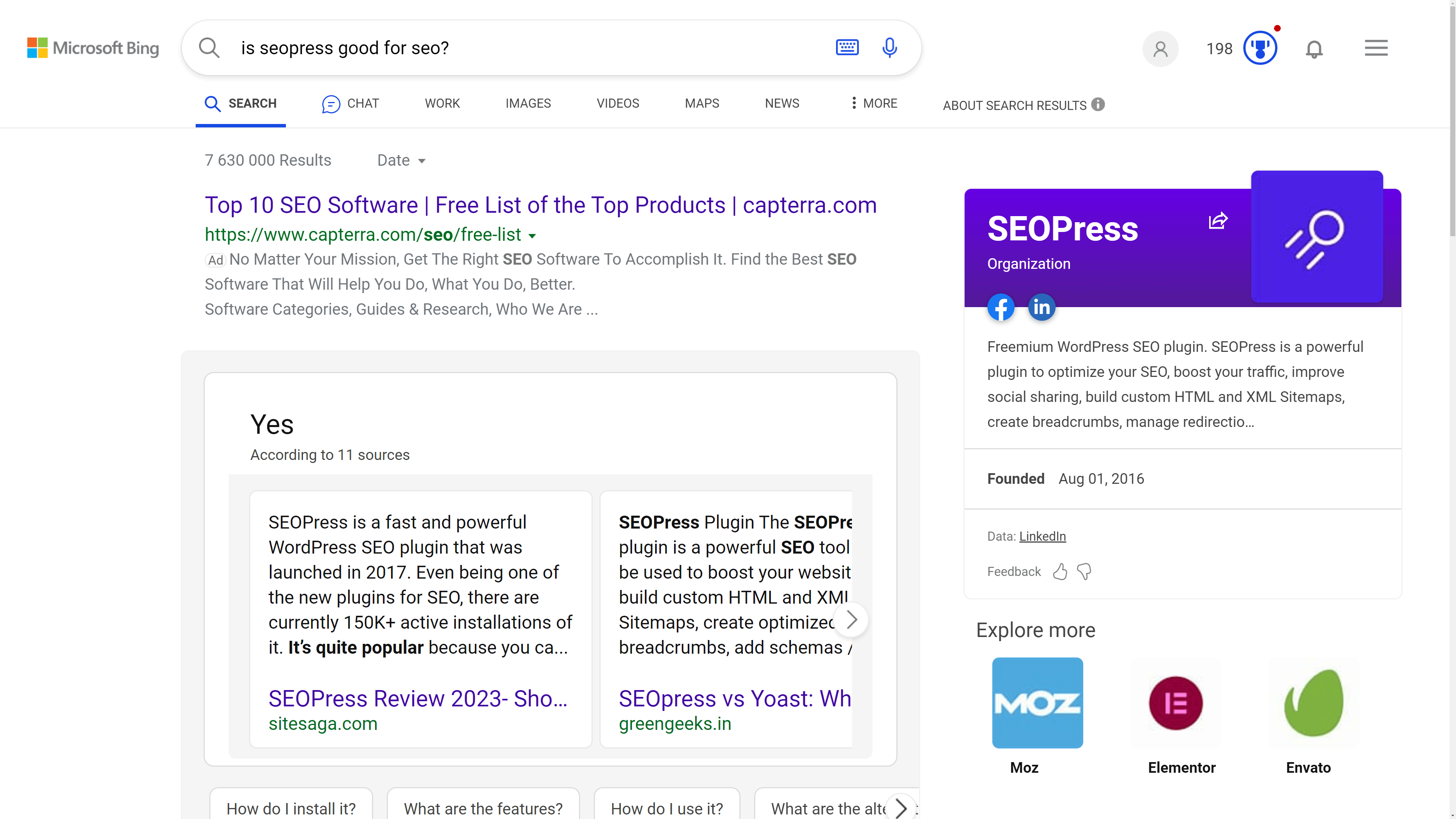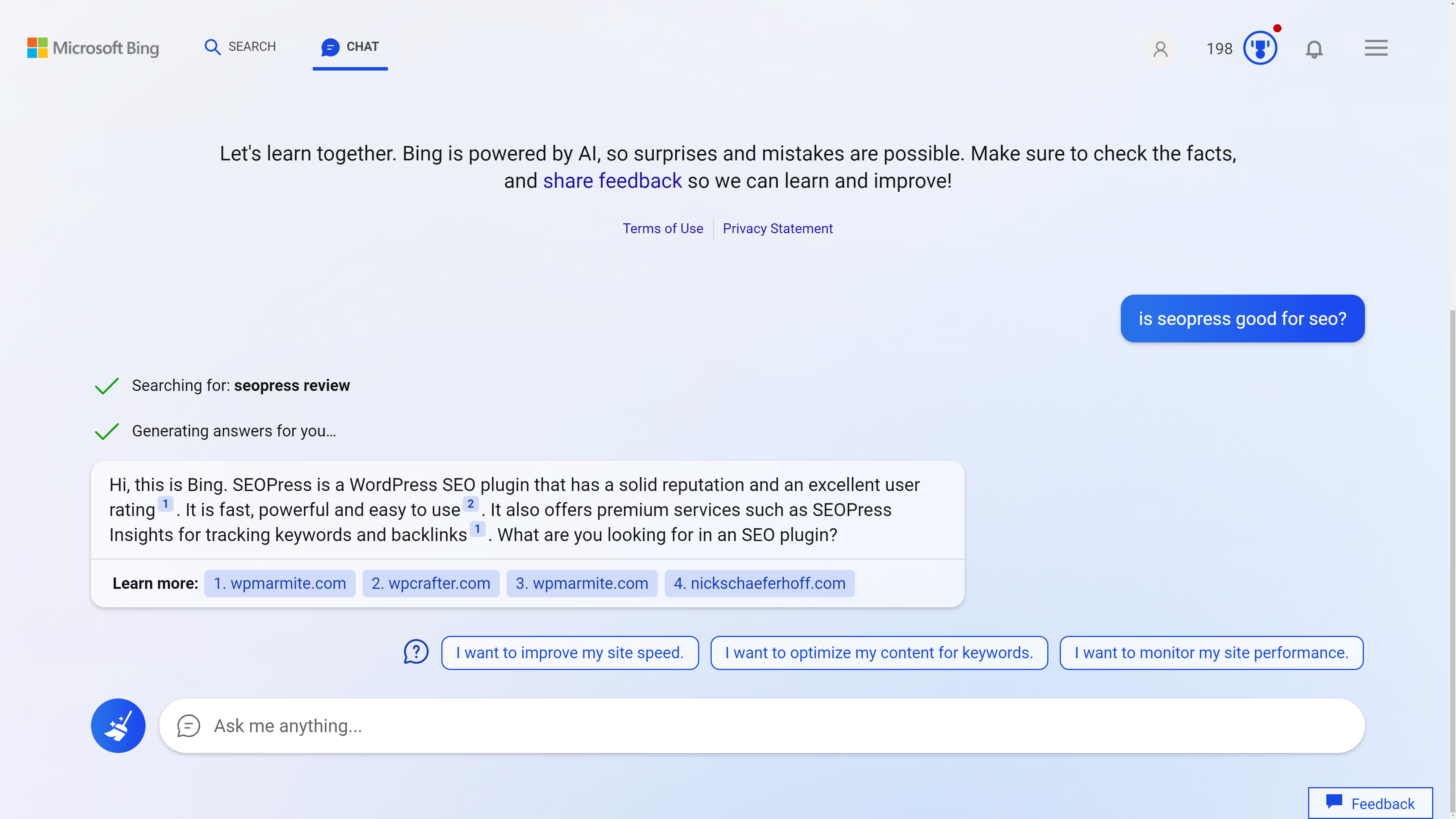February 2023 will certainly go down in history as the month that AI-powered chat arrived in search engines. However, the truth is that only a small percentage of search engine users have had access to Google Bard or ChatGPT on Bing so far. February 2023 was just the beginning.
Although these new chat features have been a major distraction for many search engine professionals, more traditional types of changes continued to have an impact on rankings, visibility, and traffic to websites from Google, which remains by far the most used search engine in the world (a 93.37% market share according to StatCounter). Google released one official update on February 21st and volatility in search results was also detected at three other periods during the month – suggesting that changes other that Bard were afoot at Google.
February 21st – Product Review Update (international)
Google announced the release of the February 2023 Product Review update on February 21st with a tweet on the @googlesearchc account. It is still rolling out at the end of February and is expected to finish rolling out early March. During this period, we can expect ranking in Google to change more frequently and this is noticeable on the Rank Ranger Risk Index above with fluctuations rated high (orange) and very high (red) from February 21st to February 28th.
This is the sixth release so far of the Product Review system (first released in April 2021), but is the first to impact languages other than English. This release will see the Product Review algorithm used for the first time in searches in Spanish, German, French, Italian, Vietnamese, Indonesian, Russian, Dutch, Portuguese and Polish.
The announcement linked to the documentation page, “Google Search’s product reviews system and your website”. This page existed already and has been updated – in English at least – to include the new languages.
The Product Reviews update works to ensure that product reviews (including product comparisons) are based on authentic user experience and not just thin content created by summarizing existing information. If you think your site could be impacted by this update, you should see Google’s guidelines on how to write high quality reviews.
Unconfirmed updates
The Rank Ranger Risk Index (and other search engine results volatility trackers) clearly shows that rankings also changed at three other periods in February. For Barry Schwartz writing on Search Engine Roundtable, unconfirmed updates happened on February 4th, February 8/9th and around February 14th.
Barry’s articles contain “SEO Chatter” that he has found on forums relating experiences of website owners or SEO specialists who have seen drops in traffic over the same periods. His logic is that fluctuations in search engine tracking tools and chatter mean that Google really did change something on those dates. The fact that Google has not communicated on any official update for these dates means they remain unconfirmed updates. We would really like more information on what happened.
Google Bard and Bing Chat launched in February
Both Google and Bing launched AI-powered chat features in their search engines early February. Google beat Bing to the wire by being the first to make the announcement, but by the end of February Bing Chat has been much more widely available and used than Google Bard.
Google Bard was announced on February 6th in a blog post by Sundar Pichai. He said that the experimental conversational AI service, powered by LaMDA was being released to trusted testers with plans to make it available to the public “in the coming weeks”. At an event in Paris on February 8th, he demonstrated Bard as what looked like a stand-alone application (like ChatGPT) and then showed chat features integrated with Google Search results.
Unfortunately, online announcements included a sponsored Twitter post that showed Bard giving an incorrect answer to a question about the James Webb Space Telescope – it wasn’t the first source of pictures of exoplanets. This slip-up is thought to have caused a drop in Google’s share price and may be the reason why Bard is not yet widely available.
Bard is an experimental conversational AI service, powered by LaMDA. Built using our large language models and drawing on information from the web, it’s a launchpad for curiosity and can help simplify complex topics → https://t.co/fSp531xKy3 pic.twitter.com/JecHXVmt8l
— Google (@Google) February 6, 2023
The next day, on February 7th, Microsoft announced the launch of Bing Chat, a ChatGPT powered feature integrated into the Bing search engine. There has been a waiting list to get access to this feature, but it is believed 1 million users have already been able to test it. Bing Chat integrates into search results to answer queries and opens into a new tab when a chat is engaged.


As seen on the screen shots above, Bing cites pages that were used as sources to generate a reply. This feature was notably missing from demonstrations of Google Bard, making website owners worried that the introduction of chat into Google will reduce traffic generated to their websites. I’m sure that we will have more news on this next month.
Google’s guidance on AI generated content
The recent craze for ChatGPT has made many more people aware of the capabilities of AI in generating text. In January, SEOPress PRO integrated a feature to generate relevant TITLE tag and META Description tag content using OpenAI’s GPT technology. Other software based on GPT can be found to write full articles, product descriptions and other content for websites.
This leads to the question, is AI-generated content good for SEO. In an attempt to answer the question, Google’s Danny Sullivan and Chris Nelson published the article “Google Search’s guidance about AI-generated content” on February 8th.
The answer is perhaps a little fuzzy, but it clearly states that Google will not disqualify content just because it is AI-generated or AI-assisted. They say that Google has been combatting low-quality, mass-produced content for years and that it will continue to be able to filter spam from useful content using its current technology. They suggest that content creators consult Google’s guidelines to Creating Helpful, Reliable, People-First Content released with the Helpful Content Updates and that “those seeking success in Google Search should be looking to produce original, high-quality, people-first content demonstrating qualities E-E-A-T” and not using “AI as an inexpensive, easy way to game search engine rankings”.
Best practice for links
Other advice published by Google in February included a new Best practice for links document updated on February 20th. This reminds website owners that “Google uses links as a signal when determining the relevancy of pages” and gives some basic, but useful reminders on how links should be added to pages whether they are internal (links to other pages on your website) or external (links to other websites).
On section deals with anchor text is, advising us to avoid links using text such as “Click here” or “Read more”, “website” or “article”.
The last section confirms that “Linking to other sites isn’t something to be scared of” and suggests that adding external links to cite sources of your content is a good way to establish “trustworthiness” which is an E-E-A-T factor. E-E-A-T stands for Experience, Expertise, Authoritativeness and Trustworthiness. These are things that Google says it tries to reward in ranking pages in search results and will be the key on sorting good content from bad content in the future.
More about E-A-T for WordPress in our article Optimizing WordPress sites for Google EAT.

 Rank Ranger Risk Index</a>" width="1200" height="720" srcset="https://www.seopress.org/wp-content/uploads/2023/03/01-rank-ranger-2023-02.png 1200w, https://www.seopress.org/wp-content/uploads/2023/03/01-rank-ranger-2023-02-768x461.png 768w" sizes="(max-width: 1200px) 100vw, 1200px" />
Rank Ranger Risk Index</a>" width="1200" height="720" srcset="https://www.seopress.org/wp-content/uploads/2023/03/01-rank-ranger-2023-02.png 1200w, https://www.seopress.org/wp-content/uploads/2023/03/01-rank-ranger-2023-02-768x461.png 768w" sizes="(max-width: 1200px) 100vw, 1200px" />

